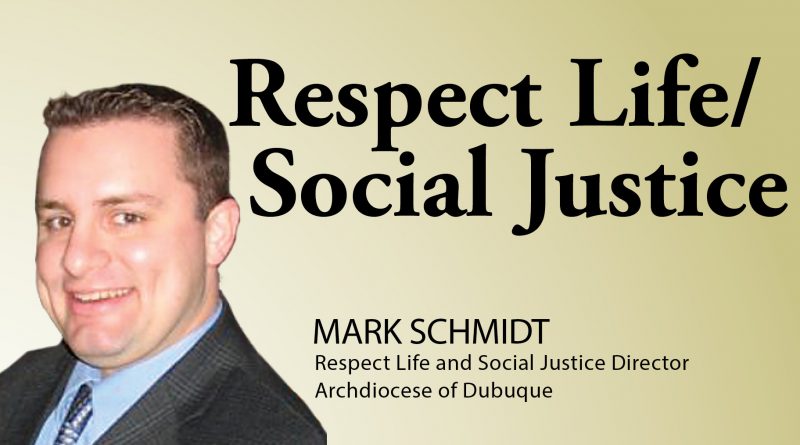Understanding church teaching on population control programs
The principle of the universal destination of goods taught by the church is that everything we have is a gift from God which requires responsible stewardship not exclusively for our own sake but for the sake of all. The apostle Paul reminds the community at Corinth of God’s equitable distribution of manna in the desert during the Exodus and the expectation on them that follows:
“As a matter of equality your surplus at the present time should supply their needs, so that their surplus may also supply your needs, that there may be equality. As it is written: “Whoever had much did not have more, and whoever had little did not have less’” (2 Cor 8:13-15).
Unfortunately, we know that in our community, nation and world, there are billions of people living today who go without the basic necessities of life. The richest 1 percent of all humanity owns more than half of the world’s wealth. The consequences of this concentrated and unequally distributed wealth means that there is less available for the billions of other people around the world. The universal destination of goods is not being lived out in our world.
Rather than addressing the greed, economic disparity and lack of charity that causes so much suffering, many people instead push a population reduction agenda. Every few days or weeks I see another national newspaper, blog or social media post arguing that birth control and abortion are solutions to poverty caused by this wealth inequality. This has resulted in foreign aid funding often requiring that receiving nations institute population control programs in order to reduce birth rates. There is an entire United Nations organization, The UN Population Fund, specifically organized to develop reproductive services (birth control and abortion) in developing nations. While they state a “neutral” stand on abortion, the UNFP does argue that they work to increase access to abortion in nations where it is already legal.
The argument that poverty can/should be alleviated by population control is based off of several beliefs that, when investigated, are found to be false. The first is that the world is overpopulated and will only become more overpopulated as time passes, straining finite resources from our planet and resulting in starvation, lack of housing, lack of jobs and other things associated with poverty.
This myth of overpopulation came out of the 19th century and gained greater popularity as the population of the planet began growing exponentially during the middle of the 20th century. While the world population has grown from about 1 billion in the early 1800s to over 7 billion today this growth rate will not continue into the future. There are predictions that the population will level off somewhere between 9 billion at the low end to upwards of 13 billion at the high end. (The UN estimates the population will be about 11 billion by 2100.)
One of the reasons for the population growth is lower child mortality rates and longer lifespans due in large part to advancements in agriculture, medicine and social/political structures. However this growth will slow long-term because life-spans can only be extended so far and fertility rates in many nations are going down.
Another myth is that poverty is caused by lack of resources on the planet, that having more kids and thus more mouths to feed leads to people going without. The truth is that our planet currently produces more than enough food to feed everyone and could provide housing for every person on the planet and has the capacity to feed and house many billions more. The problem is not too many mouths to feed; the problem is lack of equitable distribution and lack of access to markets for both producers and consumers.
Another argument puts the moral burden on families, especially poor families, to refrain from having children. It is a serious moral error to argue that people should not be allowed to participate in the fullness of the conjugal union of marriage because of their economic status. To argue that poorer people don’t deserve to have children because they “cannot support them” when they are at the same time being deprived of the very means to support their children by institutions, economies, policies and laws outside of their control is a serious error. While it is important for families to discern using their own prudential judgment what they believe is a responsible number of children to have, the truth is that the moral burden of ending poverty certainly falls in large part on those who consume in excess and prevent equitable distribution and access to the necessities of life for everyone else. Blaming poverty on families living out their vocation of marriage is not only irresponsible but contrary to the nature and dignity of marriage.
The answer to poverty, starvation, conflict is not birth control and abortion. The answer is a more just society that ensures everyone’s rights to life are respected by requiring a living wage, equitable access to nutrition, education, healthcare, housing, and other necessities of life for all of the earth’s inhabitants. We have more than enough on this planet to care for everyone currently living and even the billions yet to be born.
For more information on population control and the church’s approach to this issue participate in our Formation for All session found at dbqarch.org/rlsj/formation. Sessions are for all ages.



